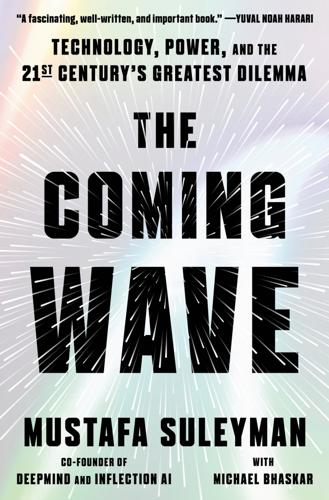
The Coming Wave: Technology, Power, and the Twenty-First Century's Greatest Dilemma
by
Mustafa Suleyman
Published 4 Sep 2023
Truly remarkable, ambitious, and impossible to ignore, this book is a persuasively argued tour de force from a leading industry expert that will shape your view of the future—and rewire your understanding of the present.” —Nouriel Roubini, professor emeritus at New York University “Mustafa Suleyman’s insight as a technologist, entrepreneur, and visionary is essential. Deeply researched and highly relevant, this book provides gripping insight into some of the most important challenges of our time.” —Al Gore, former vice president of the United States “In this bold book, Mustafa Suleyman, one of high tech’s true insiders, addresses the most important paradox of our time: we have to contain uncontainable technologies. As he explains, generative AI, synthetic biology, robotics, and other innovations are improving and spreading quickly.
…
—Martha Minow, Harvard professor, former dean of Harvard Law School “Nobody has been closer to the unfolding AI revolution than Mustafa Suleyman, and nobody is better placed to outline the risks and rewards of the huge technological changes happening right now. This is an extraordinary and utterly unmissable guide to this unique moment in human history.” —Eric Schmidt, former CEO of Google, co-author of The Age of AI “In The Coming Wave, Mustafa Suleyman offers a powerful argument that today’s explosive technological revolution is poised to be uniquely disruptive. Read this essential book to understand the pace and scale of these technologies—how they will proliferate across our society and their potential to challenge the fabric of the institutions that organize our world.”
…
—David Miliband, former U.K. foreign secretary “Presenting a stark assessment of the dangers as well as the wonders of AI, Mustafa Suleyman proposes an urgent agenda of actions governments must take now to constrain the most potentially catastrophic applications of this revolutionary challenge.” —Graham Allison, Harvard professor, bestselling author of Destined for War “The rapid pace of exponential technologies has overwhelmed us with its power and its peril. Mustafa Suleyman, in tracing the history of industrial development to the dizzying acceleration of the recent technological advances, gives us the bigger picture in calm, pragmatic, and deeply ethical prose.
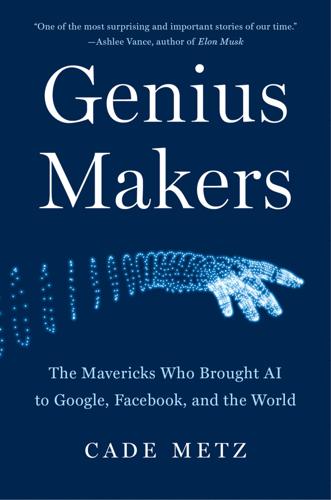
Genius Makers: The Mavericks Who Brought A. I. To Google, Facebook, and the World
by
Cade Metz
Published 15 Mar 2021
They could raise far more money from venture capitalists than they ever could writing grant proposals as professors, he told Legg, and they could erect the necessary hardware at a speed universities never could. Legg, in the end, agreed. “We didn’t actually tell anybody at Gatsby what we were planning,” Hassabis says. “They would have thought we were kind of mad.” During their postdoc year, they began spending time with an entrepreneur and social activist named Mustafa Suleyman. When the three of them decided to set up DeepMind, it was Suleyman who provided the financial brains, charged with generating the revenues the company needed to sustain their research. They launched DeepMind in the fall of 2010, its name a nod both to deep learning and to neuroscience—and to the Deep Thought supercomputer that calculated the Ultimate Question of Life in the British sci-fi novel The Hitchhiker’s Guide to the Galaxy.
…
The separation grew sharper after Larry Page and Sergey Brin spun off several Google projects into their own businesses and moved them all under a new umbrella company called Alphabet. DeepMind was among those that became its own entity. The tension between Google Brain and DeepMind was so great, the two labs held a kind of summit behind closed doors in Northern California in an effort to ease the situation. Mustafa Suleyman was one of the founders of DeepMind, but he seemed like a better fit for Google Brain. The man everyone called “Moose” wanted to build technology for today, not for the distant future. He wasn’t a gamer or a neuroscientist or even an AI researcher. The son of a Syria-born London cabdriver, he was an Oxford dropout who created a helpline for Muslim youths and worked for the mayor of London on human rights.
…
The deal gave DeepMind access to healthcare records for 1.6 million patients as they moved through three London hospitals as well as records from the previous five years, including information describing drug overdoses, abortions, HIV tests, pathology tests, radiology scans, and information about their particular hospital visits. DeepMind was required to delete it after the deal ended, but in Britain, a country that places a particularly high value on digital privacy, the story raised a specter that would follow DeepMind Health and Mustafa Suleyman for years. The following July, a British regulator ruled that the Royal Free NHS Trust had illegally shared its data with DeepMind. 12 DREAMLAND “IT IS NOT THAT PEOPLE AT GOOGLE DRINK DIFFERENT WATERS.” In the spring of 2016, Qi Lu sat on a bicycle, rolling through the park in downtown Bellevue.

Supremacy: AI, ChatGPT, and the Race That Will Change the World
by
Parmy Olson
Most of them, along with the world’s top talent, could only be found at large tech companies. If Hassabis was going to bring together large amounts of brain power to build a kind of modern-day Manhattan Project, he would need to start a business. The first blueprints came together through conversations over lunch with two other people: Shane Legg and Mustafa Suleyman. Legg was that rare AI enthusiast whose ideas about the future of artificial intelligence almost made those of Hassabis look puny by comparison. He had written a PhD thesis on “machine superintelligence” and his supervisor recommended that he speak to Hassabis afterward. “I found a kindred spirit,” Hassabis remembers.
…
It isn’t technically accurate, for instance, to suggest that computers can “think” or “learn,” but phrases like neural network, deep learning, and training help promote that idea in our minds by lending software humanlike qualities, even when they’re only loosely inspired by the human brain. The one thing everyone could agree on about Legg’s new term, AGI, was that it didn’t exist yet. One other person who believed it could was Mustafa Suleyman. At age twenty-five, the Oxford University dropout was looking for a way to use technology to change the world. He had a brain like a vice, but his areas of expertise were more in policy and philosophy than computer science. Born to a Syrian father and English mother, Suleyman had an overwhelming drive to solve problems.
…
For all the perks that DeepMind got from being part of Google, including the nap pods, massage rooms, and indoor gym, its founders were still trying to extricate themselves from the grip of their parent company, Alphabet. It had been more than two years since the acquisition, and the tech giant’s executives were dangling a new prospect in front of Demis Hassabis, Mustafa Suleyman, and Shane Legg. Instead of being an “autonomous unit,” DeepMind could become an “Alphabet company” with its own profit-and-loss statements. Being in England and far removed from the relentless growth ethos that drove Silicon Valley, the founders took Google’s suggestion in good faith. Suleyman wanted to show that DeepMind could stand on its own two feet as a business, so he dove into proving out the value of its AI systems in the real world.
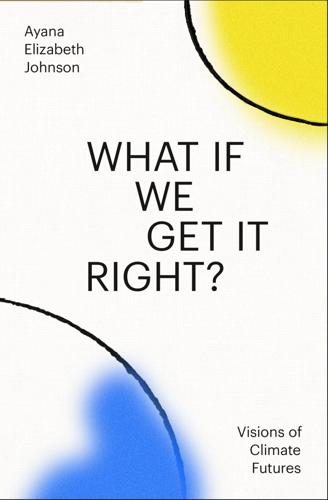
What If We Get It Right?: Visions of Climate Futures
by
Ayana Elizabeth Johnson
Published 17 Sep 2024
Born in center-city Detroit, educated at the University of Michigan and Northwestern University, the recipient of four honorary doctorates, she is active in antiwar, feminist, and environmental causes. • margepiercy.com Mustafa Suleyman is a founder, venture investor, and technology entrepreneur. He is the co-founder and CEO of Inflection AI, a new startup that creates Pi, a personal AI. He previously worked at Google as VP of AI Products and AI Policy. Before that, he co-founded DeepMind, which was bought by Google in 2014. • mustafa-suleyman.ai Oana Stănescu is a Romanian architect, curator, writer, and educator based in New York and Berlin. Her studio’s work is an undisciplined collection of projects across scales, programs, and collaborators, always in the pursuit of the affect of physical space.
…
Schwartz A Vision Poem by Wendell Berry Go Farm, Young People Interview with Brian Donahue Give Us Back Our Bones Art by Erica Deeman Seeds and Sovereignty Interview with Leah Penniman If We Build It… Neighborhoods and Landscapes Interview with Bryan C. Lee Jr. and Kate Orff A Note from Dad Words by Archibald Frederick Johnson Design for a Changing World Interview with Paola Antonelli The AI Deluge Interview with Mustafa Suleyman Follow the Money Divest and Protest Interview with Bill McKibben Corporations, Do Better With K. Corley Kenna Since Billionaires Exist Interview with Régine Clément Your Tax Dollars at Work Interview with Jigar Shah Culture Is the Context I Dream of Climate Rom-coms Interview with Franklin Leonard and Adam McKay The Planet Is the Headline Interview with Kendra Pierre-Louis Dear Future Ones Poem by Jacqueline Woodson Kids These Days Interview with Xiye Bastida and Ayisha Siddiqa There Is Nothing Naive About Moral Clarity Changing the Rules Negotiating and Leapfrogging Interview with Kelly Sims Gallagher A Green New Deal Interview with Rhiana Gunn-Wright A Blue New Deal With contributions from Jean Flemma See You in Court Interview with Abigail Dillen Community Foremost Disasterology Interview with Samantha Montano Diasporas and Home Interview with Colette Pichon Battle This Living Earth Poem by Steve Connell Building Indigenous Power Interview with Jade Begay Proto-Farm Communities Transformation A Note on Hope An Ocean of Answers Interview with Bren Smith To Be of Use Poem by Marge Piercy Climate Oath With Oana Stănescu The Joyous Work Away from the Brink Behind the Scenes Book Team Contributor Bios Acknowledgments Credits Index About the Author Endpapers _148204212_ For the love of nature, culture, and the future.
…
Schwartz, farmer and organizer Leah Penniman, and farmer/forester and historian Brian Donahue. Part three poses the open-ended prompt If We Build It…[*11]with responses touching on cities, infrastructure, art, and technology, from landscape architect Kate Orff and design justice innovator Bryan C. Lee Jr., museum curator Paola Antonelli, and artificial intelligence pioneer Mustafa Suleyman. In part four, we Follow the Money, from divesting to investing, from deploying tax dollars to transforming our financial system. We’ll hear from activist and journalist Bill McKibben, climate investment mobilizer Régine Clément, and clean-energy financier Jigar Shah. Plus, executive K.
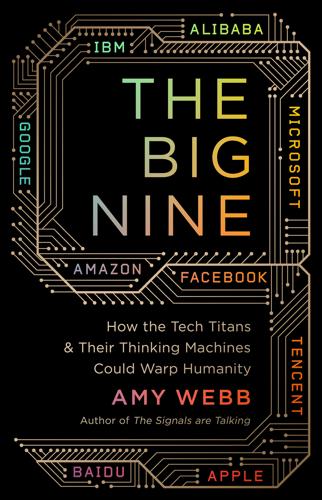
The Big Nine: How the Tech Titans and Their Thinking Machines Could Warp Humanity
by
Amy Webb
Published 5 Mar 2019
By January 2014, Google had begun investing significantly in AI, which included more than $500 million to acquire a hot deep-learning startup called DeepMind and its three founders, neuroscientist Demis Hassabis, a former child prodigy in chess, machine-learning researcher Shane Legg, and entrepreneur Mustafa Suleyman. Part of the team’s appeal: they’d developed a program called AlphaGo. Within months, they were ready to test AlphaGo against a real human player. A match was arranged between DeepMind and Fan Hui, a Chinese-born professional Go player and one of the strongest professional masters in Europe.
…
Quite a lot of patient data was passed through to DeepMind, including the details of abortions, drug use, and whether someone had tested positive for HIV.18 Both Google and the Trust were reprimanded by the Information Commissioner’s Office, which is the UK’s government watchdog for data protection. In its rush to optimize DeepMind for revenue-generating applications, cofounder Mustafa Suleyman wrote in a blog post: In our determination to achieve quick impact when this work started in 2015, we underestimated the complexity of the NHS and of the rules around patient data, as well as the potential fears about a well-known tech company working in health. We were almost exclusively focused on building tools that nurses and doctors wanted, and thought of our work as a technology for clinicians rather than something that needed to be accountable to and shaped by patients, the public and the NHS as a whole.
…
Lessin, “Deep Confusion: Tensions Lingered Within Google Over DeepMind,” Information, April 19, 2018, https://www.theinformation.com/articles/deep-confusion-tensions-lingered-within-google-over-deepmind. 18. James Vincent, “Google’s DeepMind and UK Hospitals Made Illegal Deal for Health Data, Says Watchdog,” Verge, July 3, 2017, https://www.theverge.com/2017/7/3/15900670/google-deepmind-royal-free-2015-data-deal-ico-ruling-illegal. 19. Mustafa Suleyman and Dominic King, “The Information Commissioner, the Royal Free, and What We’ve Learned,” DeepMind (blog), July 3, 2017, https://deepmind.com/blog/ico-royal-free/. 20. “Microsoft Launches Fifth Generation of Popular AI Xiaoice,” Microsoft News Center, https://www.microsoft.com/en-us/ard/news/newsinfo.aspx?
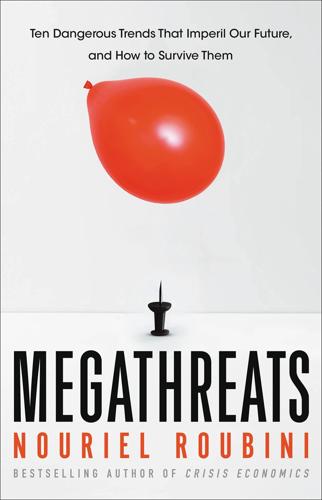
MegaThreats: Ten Dangerous Trends That Imperil Our Future, and How to Survive Them
by
Nouriel Roubini
Published 17 Oct 2022
By allowing machines to scan vast corpuses of texts and do their own pattern analyses, AIs have learned how to translate between languages with remarkable success, and how to generate new texts with remarkable authenticity. The subtle grasp of language crosses one of the last obstacles en route to satisfying the Turing Test. “Distinguishing AI-generated text, images and audio from human generated will become extremely difficult,” says Mustafa Suleyman, a cofounder of DeepMind and till recently head of AI policy at Google, as the “transformers” revolution accelerates the power of AI.43 As a consequence, a large number of white-collar jobs using advanced levels of cognition will become obsolete. Humans won’t know that their counterparts are machines.
…
Many financial markets experts and gurus have allowed me to connect my macroeconomic ideas with their market and asset price implications: Mohamed El Erian, George Soros, Louis Bacon, Alan Howard, Chris Rokos, Ray Dalio, Byron Wien, Stelios Zavvos, Steve Roach, David Rosenberg, Mark Zandi, Jim O’Neill, Luis Oganes, Joyce Chang, Lewis Alexander, Jens Nystedt, Robert Kahn, Joshua Rosner, Bill Janeway, Ron Perelman, Avi Tiomkin, Arnab Das, George Magnus, Christian Keller, Jan Hatzius, Richard Koo, Michael Milken, John Paulson, Xavier Botteri, Richard Hurowitz, Jeff Greene. There are also many public intellectuals and some media commentators who have shaped my thinking and views: Ian Bremmer, Martin Wolf, Fareed Zakaria, Eric Schmidt, Nicholas Berggruen, Gillian Tett, Richard Haass, Mustafa Suleyman, Jared Cohen, Andrew Ross Sorkin, Jacques Attali, Tom Keene, Jon Ferro. Discover Your Next Great Read Get sneak peeks, book recommendations, and news about your favorite authors. Tap here to learn more. About the Author Nouriel Roubini is a professor of economics at New York University’s Stern School of Business and the founder and chairman of Roubini Global Economics.
…
Robert Reich, “Why Automation Means We Need a New Economic Model,” World Economic Forum, March 17, 2015, https://www.weforum.org/agenda/2015/03/why-automation-means-we-need-a-new-economic-model/?utm_content=buffere751d&utm_medium=social&utm_source=twitter.com&utm_campaign=buffer. 42. Daron Acemoglu and Pascual Restrepo, “Robots and Jobs: Evidence from US Labor Markets,” Journal of Political Economy 128, no. 6 (April 22, 2020), https://economics.mit.edu/files/19696. 43. Mustafa Suleyman, “Transformers Are the Future,” July 2021.<<AU: Please provide more complete information. I was unable to find this article.>> [[This unpublished article was shared with Nouriel]] 44. “The Return of the Machinery Question,” The Economist, June 25, 2016, https://www.economist.com/special-report/2016/06/23/the-return-of-the-machinery-question. 45.
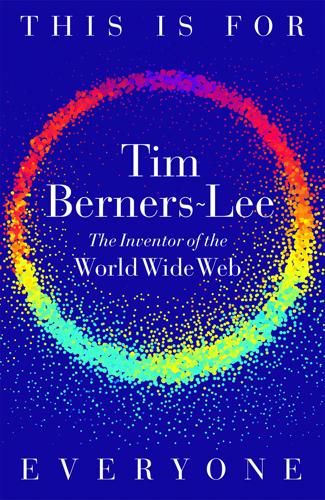
This Is for Everyone: The Captivating Memoir From the Inventor of the World Wide Web
by
Tim Berners-Lee
Published 8 Sep 2025
He had excelled in school as a young man and had captained England’s junior chess team. In his early twenties, Demis had for a time worked as a video-game developer, but this proved to be an insufficient challenge for his intellect. After receiving a PhD from University College London he went on to confront greater tasks. In 2010, along with Shane Legg and Mustafa Suleyman, Demis founded DeepMind, looking to build the world’s first ‘general’ artificial intelligence, capable not just of playing video games or solving chess problems, but of tackling any task that a human could do. At the dinner, Demis outlined the incredible progress his team had made in just four years.
…
If we are about to make something smarter than ourselves, the wise thing to do would be to build it in a sandbox where it can play, but not affect the real world – where it does not have the power to argue for its own improvement, or to be given more resources. To ensure compliance, we require global collaboration and governance – a sort of CERN-like institution where the very best AI researchers can come to collaborate, rather than compete in separate companies as they do now. Indeed, in late 2024 Demis Hassabis, the co-founder of DeepMind with Mustafa Suleyman, issued a call for just such an institution. He is not the only one. One of the benefits of being the inventor of the web is that I am included in a number of global conversations cutting across disciplines and sectors. We need more of these conversations to drive AI collaboration forward. A CERN-type institution could help to bring people together from the academic, governmental, philanthropic and commercial worlds.
…
What a great accomplishment this is. Like many other people, I’ve also started using AI for more personal queries. It’s quite fun to interact with these systems, and they often have surprising insights. With all my focus on an AI that works for me, I was happy to see Inflection.AI, a company co-founded by Mustafa Suleyman, which respected the privacy of the individual by integrating sensitive user data but not extracting it. Inflection’s values seemed aligned with Inrupt’s, and so I called Mustafa out of the blue to pitch him the idea of integrating his AI with Solid. Unfortunately (well for me, anyway), in 2024, Mustafa and most of the rest of his team were tempted away from Inflection for a large sum by Microsoft.
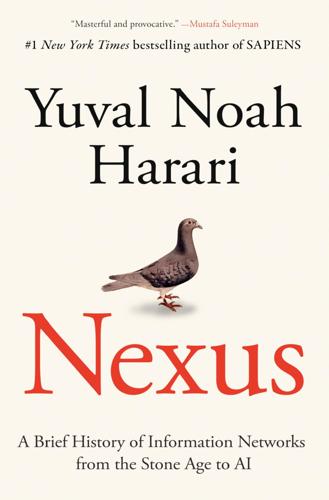
Nexus: A Brief History of Information Networks From the Stone Age to AI
by
Yuval Noah Harari
Published 9 Sep 2024
Kurzweil is keenly aware of the technology’s potential perils, and analyzes them at length, but believes they could be mitigated successfully.15 Others are more skeptical. Not only philosophers and social scientists but also many leading AI experts and entrepreneurs like Yoshua Bengio, Geoffrey Hinton, Sam Altman, Elon Musk, and Mustafa Suleyman have warned the public that AI could destroy our civilization.16 A 2024 article co-authored by Bengio, Hinton, and numerous other experts noted that “unchecked AI advancement could culminate in a large-scale loss of life and the biosphere, and the marginalization or even extinction of humanity.”17 In a 2023 survey of 2,778 AI researchers, more than a third gave at least a 10 percent chance to advanced AI leading to outcomes as bad as human extinction.18 In 2023 close to thirty governments—including those of China, the United States, and the U.K.
…
The European Union’s General Data Protection Regulation (GDPR), which came into effect in 2018, says that if an algorithm makes a decision about a human—refusing to extend us credit, for example—that human is entitled to obtain an explanation of the decision and to challenge that decision in front of some human authority.33 Ideally, that should keep in check algorithmic bias and allow democratic self-correcting mechanisms to identify and correct at least some of the computers’ more grievous mistakes. But can this right be fulfilled in practice? Mustafa Suleyman is a world expert on this subject. He is the co-founder and former head of DeepMind, one of the world’s most important AI enterprises, responsible for developing the AlphaGo program, among other achievements. AlphaGo was designed to play go, a strategy board game in which two players try to defeat each other by surrounding and capturing territory.
…
Andy McKenzie, “Transcript of Sam Altman’s Interview Touching on AI Safety,” LessWrong, Jan. 21, 2023, www.lesswrong.com/posts/PTzsEQXkCfig9A6AS/transcript-of-sam-altman-s-interview-touching-on-ai-safety; Ian Hogarth, “We Must Slow Down the Race to God-Like AI,” Financial Times, April 13, 2023, www.ft.com/content/03895dc4-a3b7-481e-95cc-336a524f2ac2; “Pause Giant AI Experiments: An Open Letter,” Future of Life Institute, March 22, 2023, futureoflife.org/open-letter/pause-giant-ai-experiments/; Cade Metz, “ ‘The Godfather of AI’ Quits Google and Warns of Danger,” New York Times, May 1, 2023, www.nytimes.com/2023/05/01/technology/ai-google-chatbot-engineer-quits-hinton.html; Mustafa Suleyman, The Coming Wave: Technology, Power, and the Twenty-First Century’s Greatest Dilemma, with Michael Bhaskar (New York: Crown, 2023); Walter Isaacson, Elon Musk (London: Simon & Schuster, 2023). 17. Yoshua Bengio et al., “Managing AI Risks in an Era of Rapid Progress,” Science (forthcoming). 18.
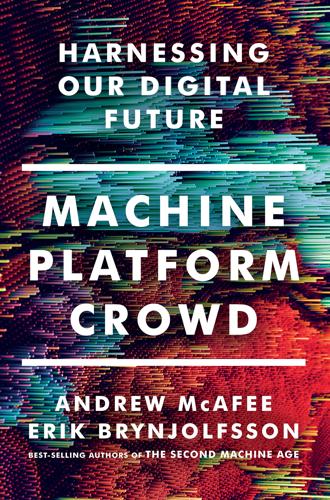
Machine, Platform, Crowd: Harnessing Our Digital Future
by
Andrew McAfee
and
Erik Brynjolfsson
Published 26 Jun 2017
When control of an actual data center was turned over to these systems, the results were immediate and dramatic. The total amount of energy used for cooling fell by as much as 40%, and the facility’s overhead—the energy not used directly for IT equipment, which includes ancillary loads and electrical losses—improved by about 15%. DeepMind cofounder Mustafa Suleyman told us these were among the largest improvements the Google data center team had ever seen. Suleyman also stressed to us that DeepMind’s approach is highly generalizable. The neural networks used by the team do not need to be completely reconfigured for each new data center. They simply need to be trained with as much detailed historical data as possible.
…
In addition to the interviewees who are quoted in this book, many others taught us a lot: Daron Acemoglu Susan Athey David Autor Jeff Bezos Nick Bloom Christian Catalini Michael Chui Paul Daugherty Tom Davenport Tom Friedman Demis Hassabis Reid Hoffman Jeremy Howard Dean Kamen Andy Karsner Christine Lagarde Yann LeCun Shane Legg John Leonard David Lipton Tom Malone James Manyika Kristina McElheren Tom Mitchell Elon Musk Ramez Naam Tim O’Reilly Gill Pratt Francesa Rossi Daniela Rus Stuart Russell Eric Schmidt Mustafa Suleyman Max Tegmark Sebastian Thrun But you can put off writing for only so long. After we had talked to a lot of people, and to each other a fair amount, it was time to put words on paper. This is an unavoidably solitary and strangely time-consuming activity. While it was going on, we needed our colleagues to carry on the work of the MIT Initiative on the Digital Economy.
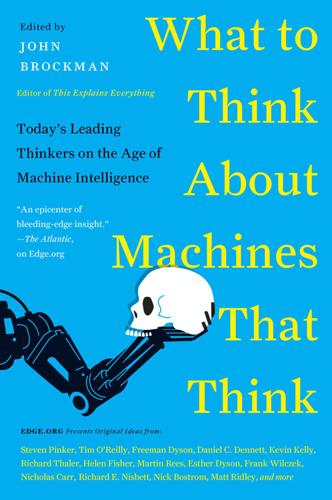
What to Think About Machines That Think: Today's Leading Thinkers on the Age of Machine Intelligence
by
John Brockman
Published 5 Oct 2015
MELANIE SWAN The Future Possibility-Space of Intelligence TOR NØRRETRANDERS Love KAI KRAUSE An Uncanny Three-Ring Test for Machina sapiens GEORG DIEZ Free from Us EDUARDO SALCEDO-ALBARÁN Flawless AI Seems Like Science Fiction MARIA SPIROPULU Emergent Hybrid Human/Machine Chimeras THOMAS METZINGER What If They Need to Suffer? BEATRICE GOLOMB Will We Recognize It When It Happens? NOGA ARIKHA Metarepresentation DEMIS HASSABIS, SHANE LEGG & MUSTAFA SULEYMAN Envoi: A Short Distance Ahead—and Plenty to Be Done NOTES ABOUT THE AUTHOR ALSO BY JOHN BROCKMAN CREDITS BACK ADS COPYRIGHT ABOUT THE PUBLISHER ACKNOWLEDGMENTS My thanks to Peter Hubbard of HarperCollins and my agent, Max Brockman, for their continued encouragement. A special thanks, once again, to Sara Lippincott for her thoughtful attention to the manuscript.
…
But until we replicate the embodied emotional being—a feat I don’t believe we can achieve—our machines will continue to serve as occasional analogies for thought and to evolve according to our needs. ENVOI: A SHORT DISTANCE AHEAD—AND PLENTY TO BE DONE DEMIS HASSABIS Vice President of Engineering, Google DeepMind; cofounder, DeepMind Technologies SHANE LEGG AI researcher; cofounder, DeepMind Technologies MUSTAFA SULEYMAN Head of applied AI, Google DeepMind; cofounder, DeepMind Technologies For years we’ve been making the case that artificial intelligence, and in particular the field of machine learning, is making rapid progress and is set to make a whole lot more progress. Along with this, we’ve been standing up for the idea that the safety and ethics of artificial intelligence is an important topic that all of us should be thinking about very seriously.
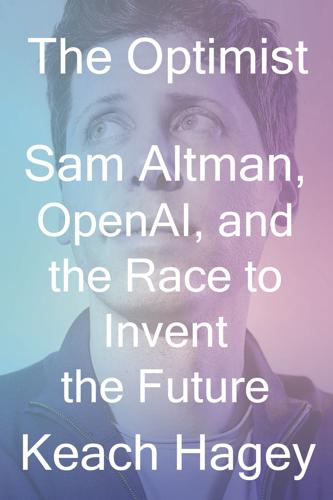
The Optimist: Sam Altman, OpenAI, and the Race to Invent the Future
by
Keach Hagey
Published 19 May 2025
Hassabis said they were building AGI inspired by the human brain, would initially measure its progress by training it to play games, and were confident that advances in computing power would drive their breakthroughs. Thiel balked at first, but over the course of weeks agreed to invest $2.25 million, becoming the as-yet-unnamed company’s first big investor.27 A few months later, Hassabis, Legg, and their friend, the entrepreneur Mustafa Suleyman, officially co-founded DeepMind, a reference to the company’s plans to combine “deep learning,” a type of machine learning that uses layers of neural networks, with actual neuroscience. From the beginning, they told investors that their goal was to develop AGI, even though they feared it could one day threaten humanity’s very existence.28 It was through Thiel’s network that DeepMind recruited his fellow PayPal veteran Elon Musk as an investor.
…
Reid Hoffman, who had helped Altman think through how to commercialize OpenAI and who was a key tie to Microsoft, outraged both Altman and Thiel by deciding to start a competing AI company, Inflection AI. He stepped down from the OpenAI board in March 2023 over the conflict. (Hoffman then sold Inflection to Microsoft, installing his co-founder, former DeepMind co-founder Mustafa Suleyman, as Microsoft’s new head of AI products.) Later that same month, Shivon Zilis, the AI expert and Neuralink executive close to Musk who had been friendly with Altman for years, also stepped down. The previous summer, OpenAI board members had been stunned—and furious—to learn that Zilis had had twins the previous November with Musk via IVF without telling them.
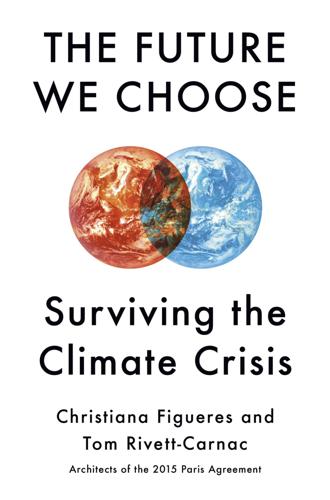
The Future We Choose: Surviving the Climate Crisis
by
Christiana Figueres
and
Tom Rivett-Carnac
Published 25 Feb 2020
Sanjayan, Steve Sawyer, Jerome Schmitt, Kirsty Schneeberger, Seth Schultz, Klaus Schwab, Arnold Schwarzenegger, Jeff Seabright, Maros Sefcovic, Leah Seligmann, Peter Seligmann, Oleg Shamanov, Kevin Sheekey, Feike Sijbesma, Nat Simons, Paul Simpson, Michael Skelly, Erna Solberg, Andrew Steer, Achim Steiner, Todd Stern, Tom Steyer, Irene Suárez, Mustafa Suleyman, Terry Tamminen, Ratan Tata, Astro Teller, Tessa Tenant, Halldór Thorgeirsson, Greta Thunberg, Svante Thunberg, Susan Tierney, Halla Tomasdottir, Laurence Tubiana, Keith Tuffley, Jo Tyndall, Hamdi Ulukaya, Gino van Begin, Ben van Beurden, Andy Vesey, Mark Watts, Dominic Waughray, Meridith Webster, Scott Weiner, Helen Wildsmith, Antha Williams, Dessima Williams, Mark Wilson, Justin Winters, Martin Wolf, Farhana Yamin, Zhang Yue, Mohammed Yunus, Jochen Zeitz, and Xie Zhenhua.
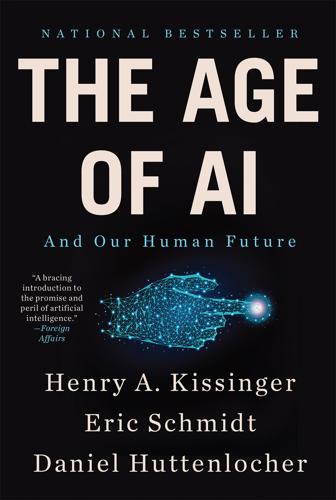
The Age of AI: And Our Human Future
by
Henry A Kissinger
,
Eric Schmidt
and
Daniel Huttenlocher
Published 2 Nov 2021
Ben Daus joined the project last, but when he did, his additional research, informed by his historical knowledge, helped bring it to its conclusion. Bruce Nichols, our editor and publisher, provided wise counsel, shrewd edits, and patience with our continued revisions. Ida Rothschild edited every chapter with her characteristic precision and insight. Mustafa Suleyman, Jack Clark, Craig Mundie, and Maithra Raghu provided indispensable feedback on the entire manuscript, informed by their experiences as innovators, researchers, developers, and educators. Robert Work and Yll Bajraktari of the National Security Commission on Artificial Intelligence (NSCAI) commented on drafts of the security chapter with their characteristic commitment to the responsible defense of the national interest.
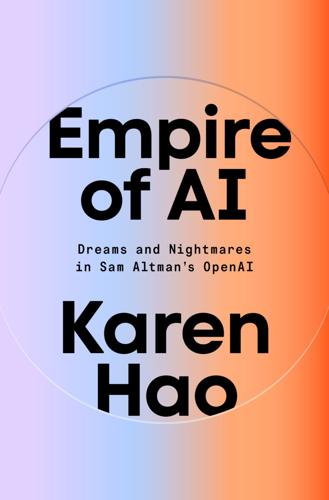
Empire of AI: Dreams and Nightmares in Sam Altman's OpenAI
by
Karen Hao
Published 19 May 2025
Since the start of 2023, it had lost three independent directors in rapid succession, in part due to the feverish race that ChatGPT had sparked to build and commercialize generative AI technologies across the industry. Reid Hoffman had been the first to step down in February after five years on the board, due to conflicts of interest. The previous year, he had cofounded a startup, Inflection, with the now-departed DeepMind cofounder Mustafa Suleyman, which was fast evolving into a direct OpenAI competitor. A month later, Hoffman was followed by Shivon Zilis, Musk’s trusted deputy and Neuralink director, who, after Musk disaffiliated, had continued to oversee OpenAI on his behalf and officially joined the board in 2020. Some in leadership had long worried that Zilis would feed sensitive company information to Musk, but she had pledged to uphold her confidentiality to OpenAI over her loyalty to its spurned former cochairman.
…
OpenAI rushed to publish a blog post defending itself, releasing early emails from OpenAI’s founding that generated more criticism for highlighting just how quickly OpenAI began to walk away from its nonprofit status and commitment to transparency. On top of the competition from Anthropic and Google, Microsoft had also begun to more aggressively diversify its AI portfolio in a response to the ouster. Most notably, in March 2024, it announced a shocking $650 million deal to effectively acqui-hire Reid Hoffman and Mustafa Suleyman’s Inflection AI while skirting around regulatory scrutiny. Microsoft would hire most of the startup’s employees, license its technology, and bring Suleyman aboard to be CEO of the tech giant’s AI division. For some, the shock value was not just the bizarre terms of the deal but also Suleyman’s reputation.
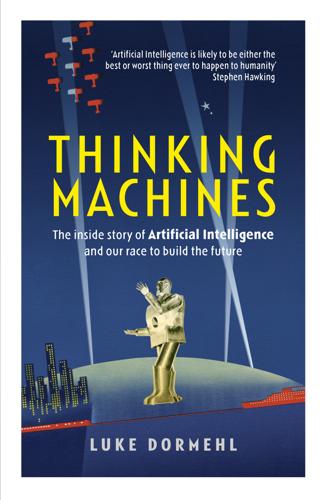
Thinking Machines: The Inside Story of Artificial Intelligence and Our Race to Build the Future
by
Luke Dormehl
Published 10 Aug 2016
That notably changed in January 2014, when Google acquired the deep learning company DeepMind. As part of the deal, Google was pushed to set up an AI ethics board, with the goal of ensuring that the technology was used wisely. While few details have been made public about the makeup of the board, the creation of such a safeguard was an important benchmark. In the summer of 2015, Mustafa Suleyman, head of applied AI at DeepMind, acknowledged the way that the public’s view of Artificial Intelligence has started to change in this area. ‘The narrative has shifted from “Isn’t it terrible that AI has been such a failure?” to “Isn’t it terrible that AI has been such a success?”’ he said, speaking at a deep learning event.
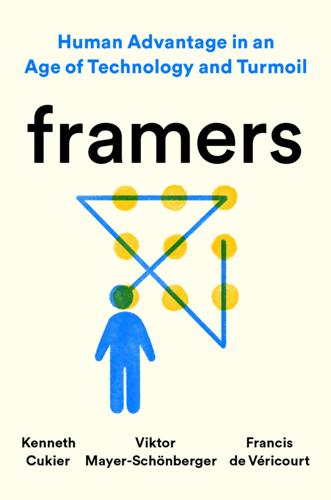
Framers: Human Advantage in an Age of Technology and Turmoil
by
Kenneth Cukier
,
Viktor Mayer-Schönberger
and
Francis de Véricourt
Published 10 May 2021
Likewise, I thank the team at the British think tank Chatham House, Wilton Park, and the Ditchley Foundation led by James Arroyo, for producing reports and events that improve people’s framing. Many interviews for The Economist’s Babbage podcast and Open Future were helpful in writing this book, including with Mustafa Suleyman of DeepMind, Patrick Collison of Stripe, Aaron Levie of Box, the entrepreneurs Elad Gil and Daniel Gross, Matt Ridley, Eric Topol, David Eagleman, Adam Grant, Howard Gardner, Daniel Levitin, Bill Janeway, Andrew McAfee, Roy Bahat, Zavain Dar, Nan Li, Benedict Evans, Azeem Azhar, David McCourt, James Field, Dan Levin, Steven Johnson, Bina Venkataraman, Sean McFate, and Shane Parrish.
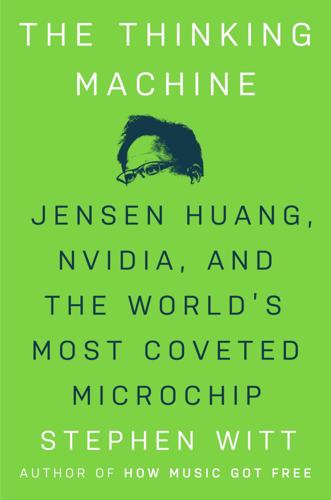
The Thinking Machine: Jensen Huang, Nvidia, and the World's Most Coveted Microchip
by
Stephen Witt
Published 8 Apr 2025
In his final slide, Huang revealed corporate partners who were beta-testing cuDNN, including Adobe, Facebook, and Netflix. The slide didn’t mention Google, an AI customer too important to be publicly identified. A few weeks before the dog show, Google had acquired DeepMind, the London-based AI company cofounded by Demis Hassabis, Mustafa Suleyman, and Shane Legg. DeepMind had grand ambitions to build the world’s first artificial “general” intelligence, or AGI, unlocking the puzzle of cognition once and for all. Already, the company was developing AlphaGo, a neural network that would, in a series of thrilling matches against grand master Lee Sedol in 2016, crack the Japanese game of Go, a long-standing milestone for AI.
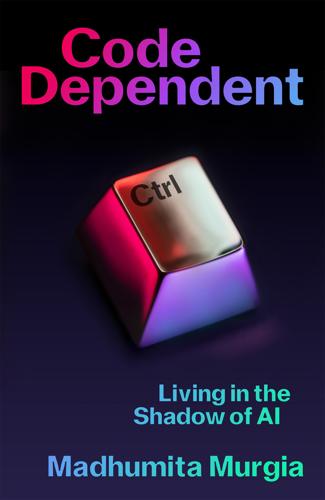
Code Dependent: Living in the Shadow of AI
by
Madhumita Murgia
Published 20 Mar 2024
The friar, who completed part of his PhD in the ethics of human enhancement technologies at Georgetown University in the US, briefs the eighty-five-year-old Pope and his senior counsellors on the potential applications of AI, which he describes as a general-purpose technology ‘like steel or electrical power’, and how it will change the way in which we all live. He also plays the role of matchmaker between what Stephen Jay Gould famously described as the non-overlapping magisteria – leaders of faith on the one hand and technology on the other. Paolo held meetings with IBM’s vice-president John Kelly, Mustafa Suleyman, a former co-founder of Alphabet-owned AI company Google DeepMind, and Norberto Andrade, who heads AI ethics policy at Meta, to facilitate an exchange of ideas on what is considered ‘ethical’ in the design and deployment of the emerging technology. He was also instrumental in advising the Pope and his council on AI’s potential dangers.
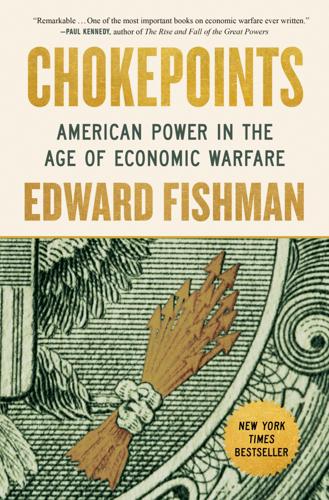
Chokepoints: American Power in the Age of Economic Warfare
by
Edward Fishman
Published 25 Feb 2025
Chips,” The New York Times, August 21, 2023, www.nytimes.com/2023/08/21/technology/nvidia-ai-chips-gpu.html. GO TO NOTE REFERENCE IN TEXT responsible use of AI: Mustafa Suleyman, a well-known artificial intelligence entrepreneur and researcher, has argued that the U.S. government should use semiconductors as a “chokepoint” to enforce global standards for the safe and ethical use of AI. See Richard Waters, “US Should Use Chip Leadership to Enforce AI Standards, Says Mustafa Suleyman,” Financial Times, September 1, 2023, www.ft.com/content/f828fef3-862c-4022-99d0-41efbc73db80. GO TO NOTE REFERENCE IN TEXT become an economic security alliance: The White House, “G7 Hiroshima Leaders’ Communiqué” (Hiroshima: G7, May 20, 2023), www.whitehouse.gov/briefing-room/statements-releases/2023/05/20/g7-hiroshima-leaders-communique.
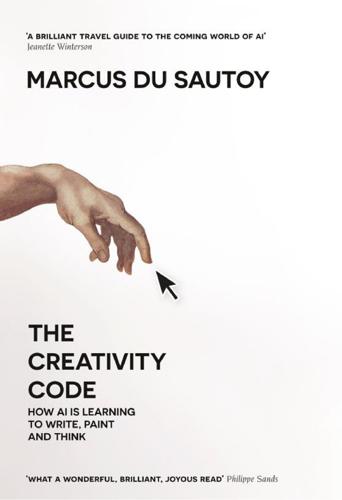
The Creativity Code: How AI Is Learning to Write, Paint and Think
by
Marcus Du Sautoy
Published 7 Mar 2019
It was during coffee breaks from lab work that Hassabis started discussing with a neuroscientist, Shane Legg, his plans to create a company to try out his ideas. It shows the low status of AI even a decade ago that they never admitted to their professors their dream to dedicate their lives to AI. But they felt they were on to something big, so in September 2010 the two scientists decided to create a company with Mustafa Suleyman, a friend of Hassabis from childhood. DeepMind was incorporated. The company needed money but initially Hassabis just couldn’t raise any capital. Pitching on a platform that they were going to play games and solve intelligence did not sound serious to most investors. A few, however, did see the vision.
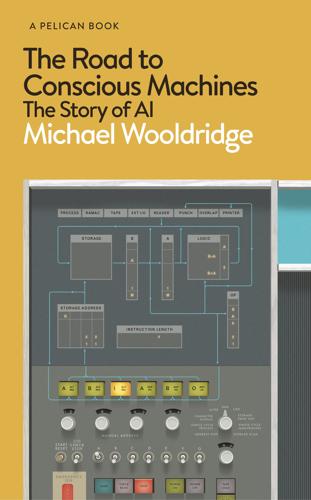
The Road to Conscious Machines
by
Michael Wooldridge
Published 2 Nov 2018
Before we can use deep learning in sensitive applications, we need to understand these problems in much more detail. DeepMind The story of DeepMind, which I referred to earlier in this chapter, perfectly epitomizes the rise of deep learning. The company was founded in 2010 by Demis Hassabis, an AI researcher and computer games enthusiast, together with his school friend and entrepreneur Mustafa Suleyman, and they were joined by Shane Legg, a computational neuroscientist that Hassabis met while working at University College London. As we heard, Google acquired DeepMind early in 2014; I can recall seeing stories in the press about the acquisition, and starting in surprise when I saw that DeepMind were an AI company.
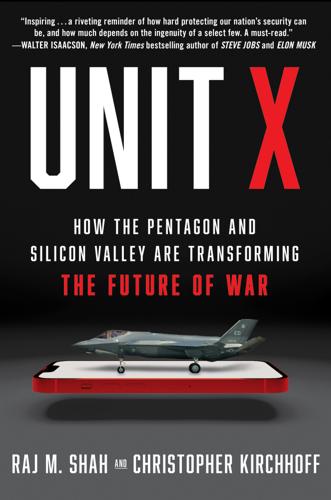
Unit X: How the Pentagon and Silicon Valley Are Transforming the Future of War
by
Raj M. Shah
and
Christopher Kirchhoff
Published 8 Jul 2024
Chris had co-chaired the technology strategy with U.S. chief technology advisor Megan Smith. A working group of almost one hundred people from eighteen departments and agencies had participated. “There’s a lot of stuff in there about AI,” Chris explained. The working group had solicited insights from world experts and even invited Mustafa Suleyman, the cofounder of Google DeepMind, to the White House for a day. In the Situation Room Mustafa had shown the President’s national security staff videos of DeepMind’s algorithms learning to play videogames better than humans. The NSC staff called the brief “the robots are coming.” Chris and Megan briefed the strategy to the National Security Council, White House chief of staff, and ultimately to President Obama.

Exponential: How Accelerating Technology Is Leaving Us Behind and What to Do About It
by
Azeem Azhar
Published 6 Sep 2021
The special projects and podcast teams at Exponential View, including Fred Casella, Ilan Goodman, Katie Irani, Elise Thomas, Diana Fox Carney, Joanna Jones, Jayne Packer, Nasos Papadopoulos and Bojan Sabioncello, kept the guests – and the insights – flowing. This book would also not have been possible without the readers of my newsletter, Exponential View, and in particular those who gave it the early momentum – including Laurent Haug, John Henderson, Martin De Kujper, Fred Wilson, Hamish Mackenzie, Mustafa Suleyman, Kenn Cukier and Daniel Ek. A special mention goes out to members of the Exponential Do community, whose vigorous and ongoing discussions helped illuminate many issues. Particular thanks to Zavain Dar and Tuan Pham, who enticed me into presenting the earliest cut of these ideas in December 2016; and to Shamil Chandaria, who first suggested that my thesis not only could make a book but should make a book.

Human Frontiers: The Future of Big Ideas in an Age of Small Thinking
by
Michael Bhaskar
Published 2 Nov 2021
Jones, Victoria Krakovna, Roman Krznaric, François Lafond, James Le Fanu, Joel Mokyr, Geoff Mulgan, Mikko Packalen, Carlota Perez, Mark Piesing, Benjamin Reinhardt, Matt Ridley, Jack Scannell, Vera Schäfer, Ben Southwood, Peter Watson and Michael Webb. I'm sure there are many names I've forgotten and apologies in advance to them. A particular thanks to Anthony Blake, James Bullock, Angus Phillips, Daniel Slater, Mustafa Suleyman and George Walkley for their comments on an early draft of the book and for many conversations around it. It goes without saying that all errors are absolutely my own and I welcome readers who find them! Compared to my previous books I'm also keenly aware this was a discussion being held on blogs, newsletters and podcasts.
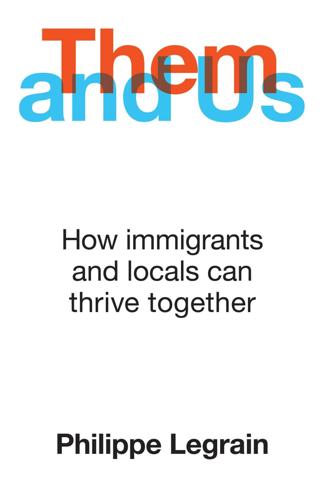
Them and Us: How Immigrants and Locals Can Thrive Together
by
Philippe Legrain
Published 14 Oct 2020
English physicist Francis Crick and American biologist James Watson concluded that it consisted of a three-dimensional double helix, based on the earlier discovery of DNA by a Swiss scientist, Friedrich Miescher, developed by Phoebus Levene, a Lithuanian-born American biochemist, and Erwin Chargaff, an Austro-Hungarian one.2 Or consider DeepMind, a London-based company doing groundbreaking practical research on artificial intelligence. Mustafa Suleyman, whose father was a Syrian-born taxi driver and mother an English nurse, met Demis Hassabis, whose father was Greek-Cypriot and mother Chinese Singaporean, when they were teenagers in north London. ‘Demis and I had conversations about how to impact the world, and he’d argue that we need to build these grand simulations that one day will model all the complex dynamics of our financial systems and solve our toughest social problems,’ Mustafa explains.
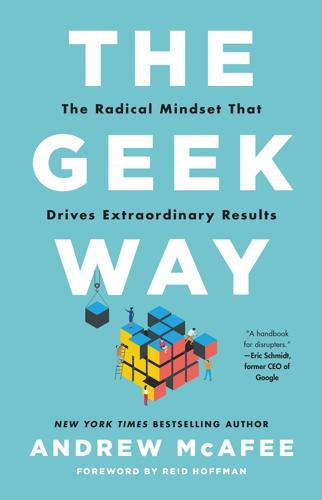
The Geek Way: The Radical Mindset That Drives Extraordinary Results
by
Andrew McAfee
Published 14 Nov 2023
I want to thank Andrew Anagnost, Sinan Aral, Matt Beane, Erik Brynjolfsson, Thomas Buberl, Ed and Leslie Fine, Carter Gaffney, Adam Grant, Nancy Haller, Maika Hemphill, Carole Hooven, Karen Karniol-Tambour, Vanya Koonce, Ruth Luscombe, David McAfee, James Milin, Michael Muthukrishna, Krizia Quarta, Daniel Rock, Jonathan Ruane, Amy Shepherd, Mustafa Suleyman, David Verrill, and Katherine Zarrella. I know I’ve forgotten some people who should be on this list, and I’m sorry. I also want to apologize for the errors found in these pages. They’re the only part of the book that I take full credit for. Discover Your Next Great Read Get sneak peeks, book recommendations, and news about your favorite authors.
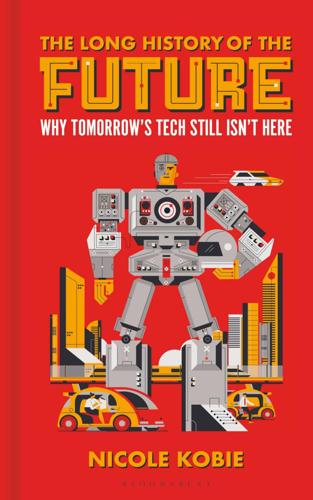
The Long History of the Future: Why Tomorrow's Technology Still Isn't Here
by
Nicole Kobie
Published 3 Jul 2024
‘We took cutting edge research straight out of an academic research lab and launched it, in just a little over six months,’ wrote Google’s head of the image search team in a blog post. A year later, in 2014, Google bought DeepMind, a medical AI company, for £400 million, a massive sum of money for another company that hadn’t yet released a single product. As with DNNresearch, the aim here was to capture the people – in this case, Demis Hassabis, Mustafa Suleyman, and Shane Legg. Two years later, DeepMind’s AlphaGo algorithm beat the best human players. Around the same time, Ian Goodfellow, then at Google, came up with the generative adversarial network (GAN), where two different types of neural networks play a game: one makes output that looks real, while the other has to guess what data is made up, creating a positive feedback loop that makes better and better images (or other output) – yes, deep learning is weird.

Gambling Man
by
Lionel Barber
Published 3 Oct 2024
Seth: Korea: A Very Short Introduction, Oxford University Press, 2020 William Shawcross: Murdoch: The Making of a Media Empire, Touchstone, 1993 Paul Sheard: ‘The Japanese Economy: Where is it Leading in the Asia Pacific?’, in Mari Pangestu and Li Gang Son (eds), Japan’s Future in East Asia and the Pacific, The Australia National University, 2008 Takashi Sugimoto: Son Masayoshi 300 Nen Ōkoku eno Yabō, Nihon Keizai Shimbun Sha, 2017 Mustafa Suleyman: The Coming Wave: AI, Power and the 21st Century’s Greatest Dilemma, Bodley Head, 2023 Haruhito Takeda: Nihon no Jōhō Tsūshin Sangyō Shi: 2 Tsu no Sekai Kara 1 Tsu no Sekai e, Yūhikaku, 2011 Seiichirō Takita: Son Masayoshi: Internet Zaibatsu Keiei, Nikkei Bijinesujin Bunko, 2011 Gillian Tett: Saving the Sun: A Wall Street Gamble to Save Japan from its Trillion-Dollar Meltdown, Harper Business, 2003 Juri Tsukui (ed.): Son Masayoshi: Heisei no Ryōma Densetsu: Onshitachi ga Kataru Son Masayoshi no Sugao, Genbun Media, 2011 Ezra Vogel: Japan as Number One, Harvard University Press, 1979 Reeves Wiedmann: Billion Dollar Loser: The Epic Rise and the Spectacular Fall of Adam Neumann and WeWork, Hodder & Stoughton, 2020 Kōichi Yoshida: Naibu Kokuhatsu: SoftBank Yuganda Keiei, Yell Shuppansha, 1997.

Evil Genes: Why Rome Fell, Hitler Rose, Enron Failed, and My Sister Stole My Mother's Boyfriend
by
Barbara Oakley Phd
Published 20 Oct 2008
A contemporary remarked: “For myself I have always heard every one speak ill of her and of her children, and well of the first-born and his mother.”42 (Recent attempts to rehabilitate Roxalena's reputation involve putting a positive, feminist spin on her more unsavory, power-hungry attributes.)43 In any event, it appears Roxalena forged a letter that made it seem that crown prince Mustafa—Suleyman's favorite son—was scheming with the shah of Persia to dethrone his father. Mustafa was subsequently strangled on Suleyman's orders. Roxalena also orchestrated Grand Vizier Ibrahim's death, taking advantage of every bit of gossip and information to inflame Suleyman's mind against his stalwart commander and best friend since childhood.
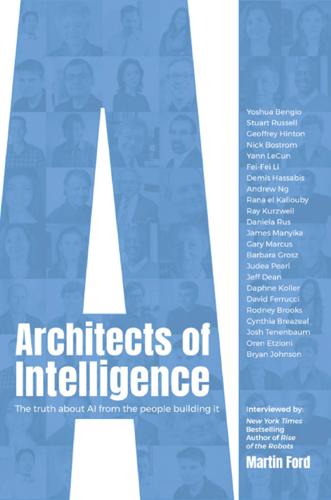
Architects of Intelligence
by
Martin Ford
Published 16 Nov 2018
In 2017 he was named in the Time 100 list of the world’s most influential people, and in 2018 was awarded a CBE for services to science and technology. He was elected as a Fellow of the Royal Society, has been a recipient of the Society’s Mullard Award, and was also awarded an Honorary Doctorate by Imperial College London. Demis co-founded DeepMind along with Shane Legg and Mustafa Suleyman in 2010. DeepMind was acquired by Google in 2014 and is now part of Alphabet. In 2016 DeepMind’s AlphaGo system defeated Lee Sedol, arguably the world’s best player of the ancient game of Go. That match is chronicled in the documentary film AlphaGo (https://www.alphagomovie.com/). Chapter 9.

Lonely Planet Turkey (Travel Guide)
by
Lonely Planet
,
James Bainbridge
,
Brett Atkinson
,
Steve Fallon
,
Jessica Lee
,
Virginia Maxwell
,
Hugh McNaughtan
and
John Noble
Published 31 Jan 2017
He proceeds to take Syria and Egypt, assuming the mantle of Caliph, then captures the holy cities of Mecca and Medina. 1520–66 The reign of Süleyman the Magnificent is the zenith of the Ottoman Empire. Süleyman leads his forces to take Budapest, Belgrade and Rhodes, doubling the empire's size. 1553 Mustafa, Süleyman's first-born, is strangled upon his father's orders. Allegedly, Süleyman's wife Roxelana conspired to have Mustafa killed so her own son could succeed to the throne. 1571 The Ottoman navy is destroyed at Lepanto by resurgent European powers who are in control of Atlantic and Indian Ocean trade routes, and who are experiencing the advances of the Renaissance. 1595–1603 Stay-at-home sultan, Mehmet III, has 19 brothers strangled to protect his throne.
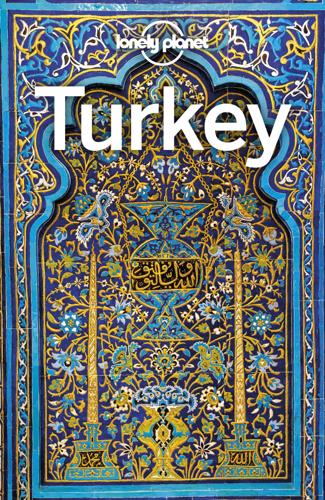
Lonely Planet Turkey
by
Lonely Planet
He proceeds to take Syria and Egypt, assuming the mantle of Caliph, then captures the holy cities of Mecca and Medina. 1520–66 The reign of Süleyman the Magnificent is the zenith of the Ottoman Empire. Süleyman leads his forces to take Budapest, Belgrade and Rhodes, doubling the empire’s size. 1553 Mustafa, Süleyman’s first-born, is strangled upon his father’s orders. Allegedly, Süleyman’s wife Roxelana conspired to have Mustafa killed so her own son could succeed to the throne. 1571 The Ottoman navy is destroyed at Lepanto by resurgent European powers who are in control of Atlantic and Indian Ocean trade routes, and who are experiencing the advances of the Renaissance. 1595–1603 Stay-at-home sultan Mehmet III has 19 brothers strangled to protect his grasp on the throne.
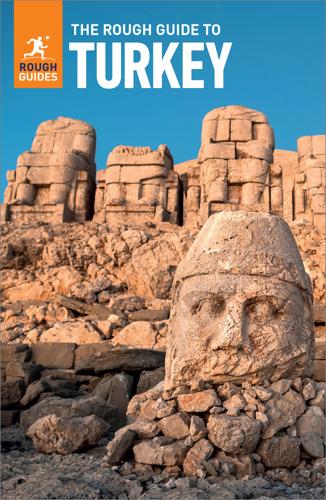
The the Rough Guide to Turkey
by
Rough Guides
Published 15 Oct 2023
As much contemplative mystic as warrior-sultan, Murad was the only Ottoman ruler ever to abdicate voluntarily, though pressures of state forced him to leave his dervish order and return to the throne after just two years. The last sultan to be interred at Bursa, he’s one of the few here who died in his bed; both the coffin and dome were originally open to the sky ‘so that the rain of heaven might wash my face like any pauper’s’. Next along is the tomb of Şehzade Mustafa, Süleyman the Magnificent’s unjustly murdered heir; perhaps indicative of his father’s remorse, the tomb is done up in extravagant İznik tiles, with a top border of calligraphy. Nearby, the tomb of Cem Sultan, his brother Mustafa and two of Bayezid II’s sons is decorated with abstract, botanical and calligraphic paint strokes up to the dome, with turquoise tiles below.